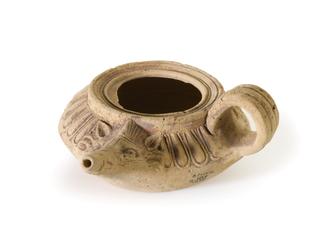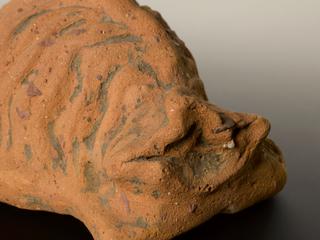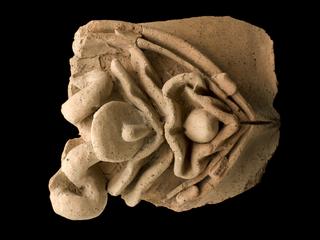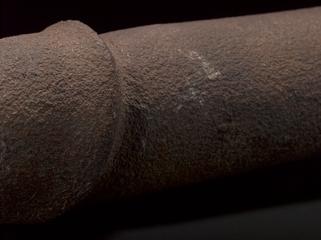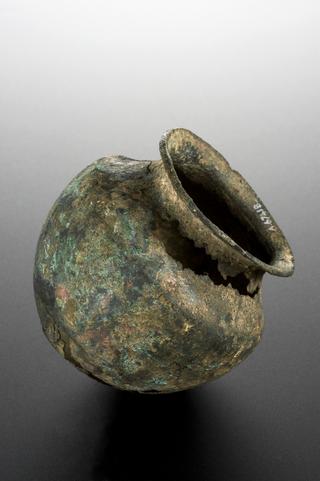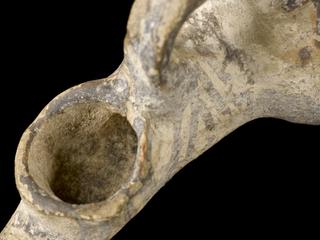
Egyptian mummy in wooden sarcophagus
- PART OF:
- Egyptian mummy, 343-69 BCE
- Made:
- 343-69 BCE in Ancient Egypt
- maker:
- Ancient Egyptian people
Wooden sarcophagus containing an Egyptian mummy of the Ptolemaic period, Fayoum region (Al-Fayyum, Upper Egypt) Egypt, 343-69 BCE (see note), purchased in 1932
Mummification was a complicated burial process common in ancient Egypt. First the internal organs were removed, apart from the heart, which was considered to be the seat of the mind and the emotions. The lungs, liver, intestines and stomach were placed in separate canopic jars, to be buried with the body. The body was then dried with natron for forty days. Once dried, the fingers, toes, arms and legs were wrapped individually. The whole body was then wrapped in cloth with amulets and items to help the person see, hear, speak, taste and eat in the afterlife. The sarcophagus of this mummy features a prayer to Osiris, god of the dead, written in hieroglyphics.
Details
- Category:
- Classical & Medieval Medicine
- Collection:
- Sir Henry Wellcome's Museum Collection
- Object Number:
- A113324/1
- type:
- human remains
- credit:
- Wellcome Trust
